In the world of corporate recruitment, finding the right talent is a mission-critical task. Traditional methods, such as Multiple Choice Questions (MCQs), have been the go-to choice for assessing candidates. However, as organizations increasingly seek individuals with higher-level cognitive abilities, it’s essential to explore alternative assessment methods. In this blog, we’ll uncover the limitations of MCQs in corporate recruitment and discover how innovative assessments, using Python programming and sales roles as examples, align with Bloom’s Taxonomy to evaluate candidates more effectively.
The Shortcomings of MCQs in Corporate Recruitment:
MCQs have been a trusted tool in corporate recruitment for their simplicity and ease of administration. However, they often fall short when it comes to evaluating candidates for positions that demand higher-order thinking skills. Let’s try to understand it with some examples using it Blooms Taxonomy for Sale and Python training:
1. Limited Evaluation of Critical Thinking (Bloom’s Taxonomy Level: Analyze and Evaluate): MCQs are excellent for assessing a candidate’s knowledge and comprehension. Still, they struggle to evaluate higher-level cognitive abilities such as critical thinking, which involves analyzing information, evaluating options, and making informed decisions.
2. Inadequate Assessment of Creativity (Bloom’s Taxonomy Level: Create): In roles like software development (e.g., Python programming) or sales, creativity is invaluable. MCQs are rigid and structured, offering no room for candidates to showcase their creative problem-solving or innovative thinking.
3. Failure to Measure Practical Application (Bloom’s Taxonomy Level: Apply): Corporate roles often require the application of knowledge in real-world scenarios. MCQs, typically administered in controlled environments, may not gauge a candidate’s ability to apply their skills effectively in practical contexts.
4. Limited Scope for Problem-Solving (Bloom’s Taxonomy Level: Analyze, Evaluate, and Create): Complex problem-solving is a crucial skill in corporate settings. MCQs generally present binary questions with predetermined answers, making it challenging to assess a candidate’s capacity to tackle intricate challenges.
Evaluating Candidates Beyond MCQs: Python and Sales Assessments
1. Python Programming Assessment (Example): To assess candidates for a Python development role effectively, consider using performance-based assessments. Provide candidates with a real coding task, such as developing a program to solve a specific problem. This aligns with the ‘Apply’ and ‘Create’ levels in Bloom’s Taxonomy, as candidates must apply their knowledge to create a functional solution.
2. Sales Assessment (Example): For sales positions, a traditional MCQ may test product knowledge but may miss crucial aspects of a candidate’s abilities—instead, it presents candidates with a complex sales scenario they might encounter in the role. Ask them to develop a sales strategy, showcasing their problem-solving and decision-making skills in a real-world context.
3. Incorporating Bloom’s Taxonomy: By utilizing assessments that align with Bloom’s Taxonomy, organizations can evaluate candidates more comprehensively. For instance, ‘Analyze’ and ‘Evaluate’ questions can gauge a candidate’s critical thinking abilities, while ‘Create’ tasks can assess creativity and innovation.
Conclusion:
Corporate recruitment is evolving, and so are the demands for higher-order cognitive abilities. While MCQs have their place in assessing foundational knowledge, they are inadequate for evaluating candidates’ higher-level thinking skills required in roles like Python programming and sales. By embracing innovative assessment methods that align with Bloom’s Taxonomy or any other knowledge & skill framework, organizations can make more informed hiring decisions, ensuring they identify candidates who not only know but can apply, analyze, evaluate, and create value in their roles. It’s time to go beyond the limitations of MCQs and unlock the full potential of your talent acquisition process. Implementing this is often more challenging than simply discussing it.
Here Assessfy powered with AI comes in.
1. Assess Higher-Level Cognitive Abilities: Go beyond MCQ assessments that merely scratch the surface of cognitive capabilities. Assessfy’s pioneering auto-evaluation system for descriptive and coding assessments is designed to evaluate higher-level cognitive abilities, providing you with a nuanced understanding of your candidates’ true potential.
2. Deep Insights, Not Just Scores: A score of 60 out of 100 is an abstract number, offering no insight into a candidate’s capabilities at a granular level. Leverage the power of Artificial Intelligence with Assessfy to delve deeply into understanding an individual’s knowledge and skills, assessing their behavior and proficiency levels to ascertain suitability for a particular job role. Gain clear insights: What do they know, and what can they do?
3. Comprehensive Assessment Suite: Explore a comprehensive suite of valid and trustworthy assessments across aptitude, reasoning, behavior, sales, English, tech, coding, business, and AI. You name it and we assess.
4. Trust and Integrity: We’re committed to trust and integrity. Our AI proctoring system guarantees assessment security, eliminating cheating risks.
Embark on a transformative hiring journey for both lateral hires and freshers today 1with Assessfy!

